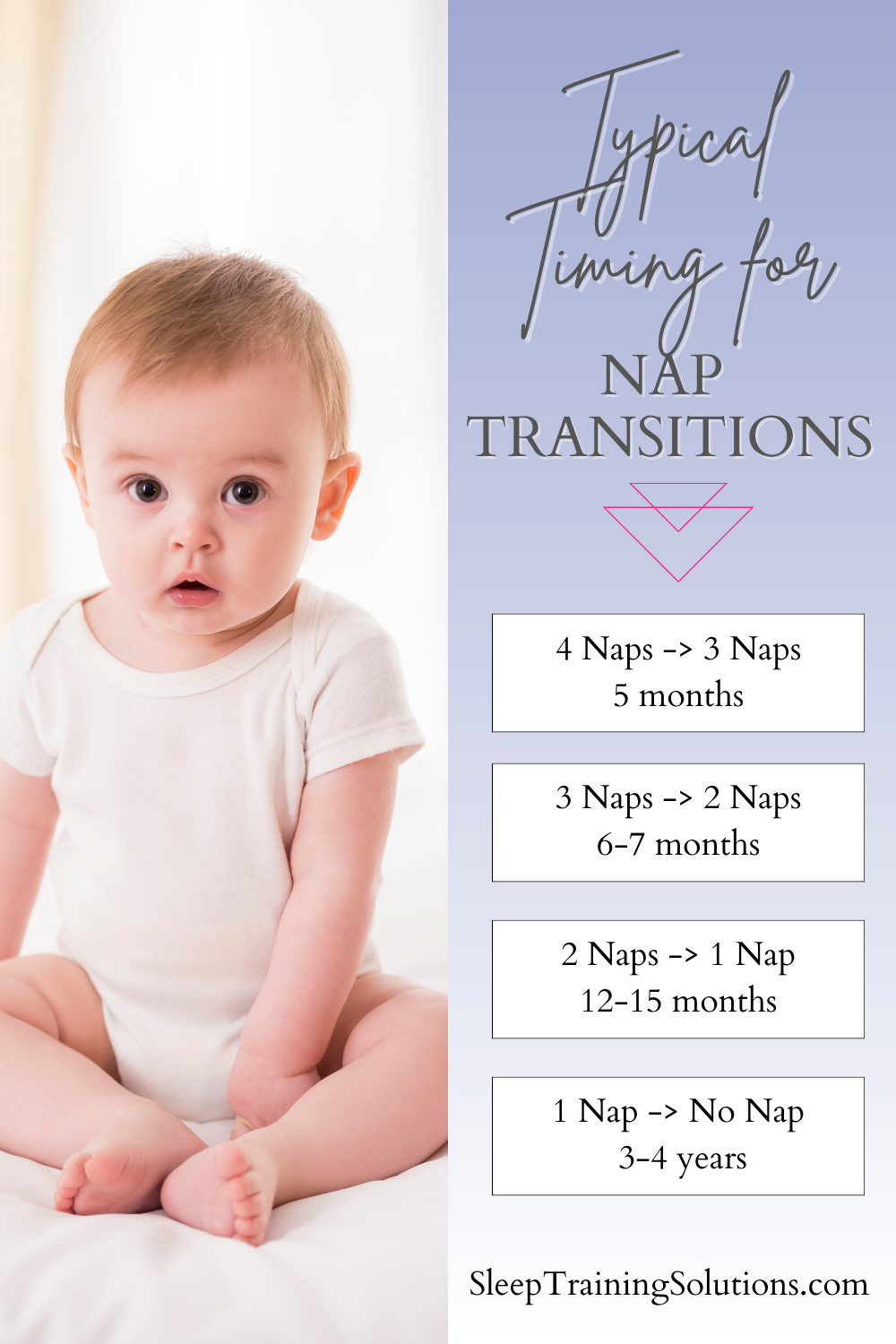5 Signs that your child is ready to drop a nap
Wondering when to drop a nap?
Your child was sleeping pretty well, falling asleep independently in a good amount of time, and then BAM! All of a sudden your little one decides to throw you a curve ball and start fighting sleep. If your child is showing one or more of these signs - and it’s within the typical time for a nap transition - then it’s likely time for a nap transition! Below I’ve listed the 5 signs to look for to see if your child is ready to drop a nap.
When do children drop a nap?
During that first year of life, babies have a LOT of changes in their daytime sleep schedule! They’ll have 5-8 naps as newborns and by the first birthday, they get ready to transition to only one nap.
Below is a guide for the timing of nap transitions. This is a general timetable. Many children will be close to these times, but some children do things a little sooner or later than these times…and that can be perfectly normal too!
It may be time to drop the nap if…
your child is around the time listed above for a nap transition
you’ve ruled out an illness (like an earache) or discomfort (for example from reflux)
AND one or more of the signs below are true
Want to make sure there aren’t other things that could be affecting your child’s sleeplessness? I have a very thorough post with things to rule out that may be affecting sleep: Reasons Why Your Baby Can’t Fall Asleep Easily and Sleep Through the Night.
Here are the signs that your child is ready for a nap transition:
#1 Baby is fighting naps
Your baby used to go down for naps relatively easily, but now he’s more fussy, just taking longer to settle down and/or fall asleep, or doesn’t fall asleep at all for the nap.
This usually happens for the last nap of the day but can happen with any nap.
Make sure that you have implemented a short 5-minute nap routine to transition from playtime to sleep time. This is a time to close the curtains, put on a sleep sack, read a story, and turn on the white noise. Your child should not be getting a feed during the naptime routine or getting drowsy (or falling asleep) at any time during the routine.
If your baby is awake, not drowsy, fighting the nap, and close to one of the typical times for a nap transition, then it’s likely time to drop a nap.
#2 Baby is taking a long time to fall asleep at bedtime
Your child used to move through the bedtime routine easily, go into the crib awake, and fall asleep in ~10 minutes, but now the whole process is a giant struggle! Your little one is fussy during the routine and takes a lot longer to settle down and fall asleep at bedtime.
Before you jump to a nap transition, a common reason kiddos take longer to fall asleep at bedtime is that they are undertired (not tired enough). You can try bumping bedtime later by 15 minutes for younger babies, or 15-30 minutes for older babies and toddlers. If that doesn’t help things, and you’re in that window for nap transitions, then time to drop a nap!
#3 Middle of the night wakings are starting or increasing
If your child was sleeping through the night fairly consistently but is now starting to wake up more - either the number of times she’s waking up has increased or the duration of the night waking has increased - and you’re within one of the typical nap transition windows, then it’s time to drop a nap.
Keep in mind that many babies 6 months and older can sleep through the night without a night feed. (Of course, every situation is unique and you should always consult with your pediatrician.)
If your baby is just using the night feed(s) to get back to sleep - taking just a small amount and/or using you as a human pacifier - and not seeing those feeds as nutrition, then it’s likely time to get rid of night feeds.
Learning the signs that your baby is ready to night wean is part of the sleep training process I help parents with in my Baby Sleep Course and my 1-to-1 coaching programs.
There are so many pieces to successfully sleep training - Download your free PDF and get weekly sleep tips to help set you up for success!
#4 Baby is waking too early in the morning
There are several reasons why a child might start waking up early when they previously had been sleeping until a reasonable time. One reason could be that your child is getting too much daytime sleep and is ready to transition to fewer naps so they can sleep for the full night of sleep.
This is the trickiest sign that a nap transition is imminent. There are so many reasons why a child who was sleeping through the night until after 6-7am and is now waking up between 4-6am that I created a standalone guide - the Early Wakings Guide - to help troubleshoot this issue.
#5 Naps are getting shorter
When naps that were over an hour start getting shorter, it can be because your little one is undertired (not tired enough) and needs a nap transition, is overtired (which makes it harder to fall asleep easily), or doesn’t have strong enough sleep skills to get into the next sleep cycle.
Understanding sleep cycles and short naps for babies is a detailed post that includes the amount of daytime nap sleep by age, and more on 20, 30, and 40-minute naps.
If you need help with nap transitions, getting your child on the right schedule, and making falling asleep easier, schedule a call!
Is my baby ready for a nap transition?
Related Posts:
This post is for informational purposes only and may not be the best fit for you, your child and/or your personal situation. It shall not be construed as medical advice. The information and education provided here is not intended or implied to supplement or replace professional medical treatment, advice, and/or diagnosis. Always check with your child’s physician or medical professional before trying or implementing any information read here.
Sleep Training Solutions is a participant in the Amazon Services LLC Associates Program, an affiliate advertising program designed to provide a means for sites to earn advertising fees by advertising and linking to Amazon.com and affiliated websites. I will earn a small commission, at no additional cost to you, if you purchase them.







